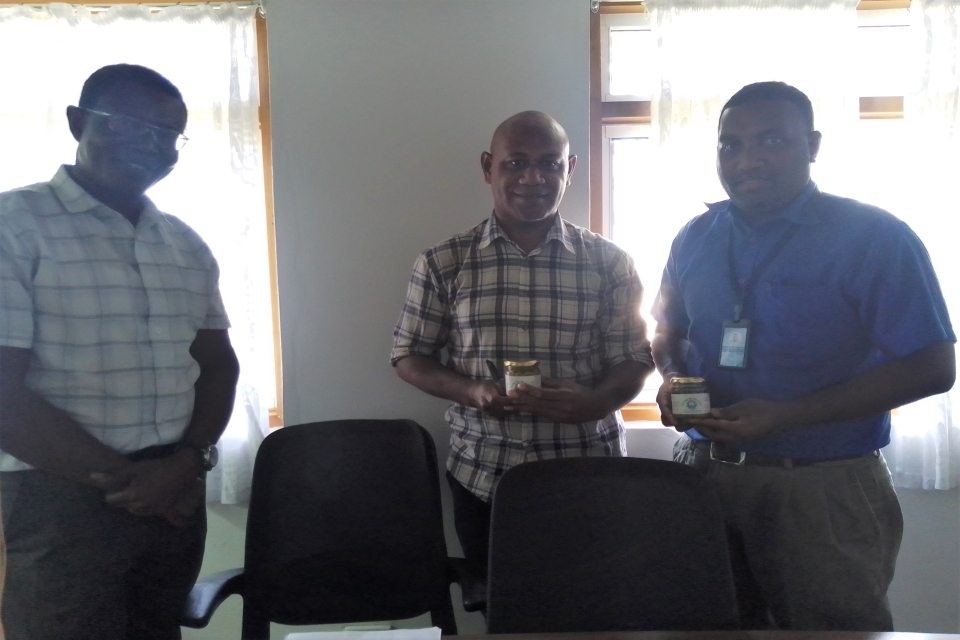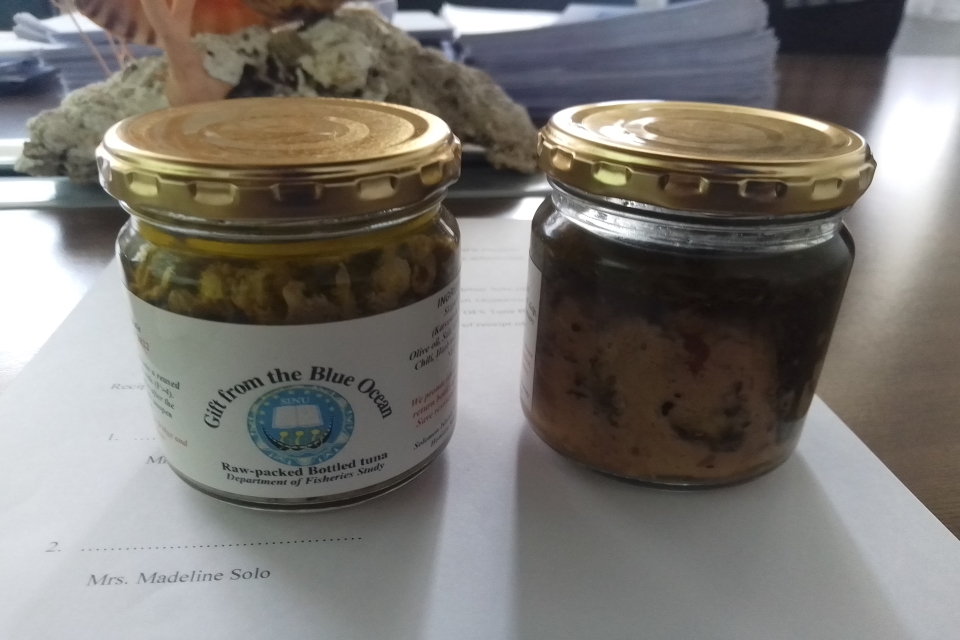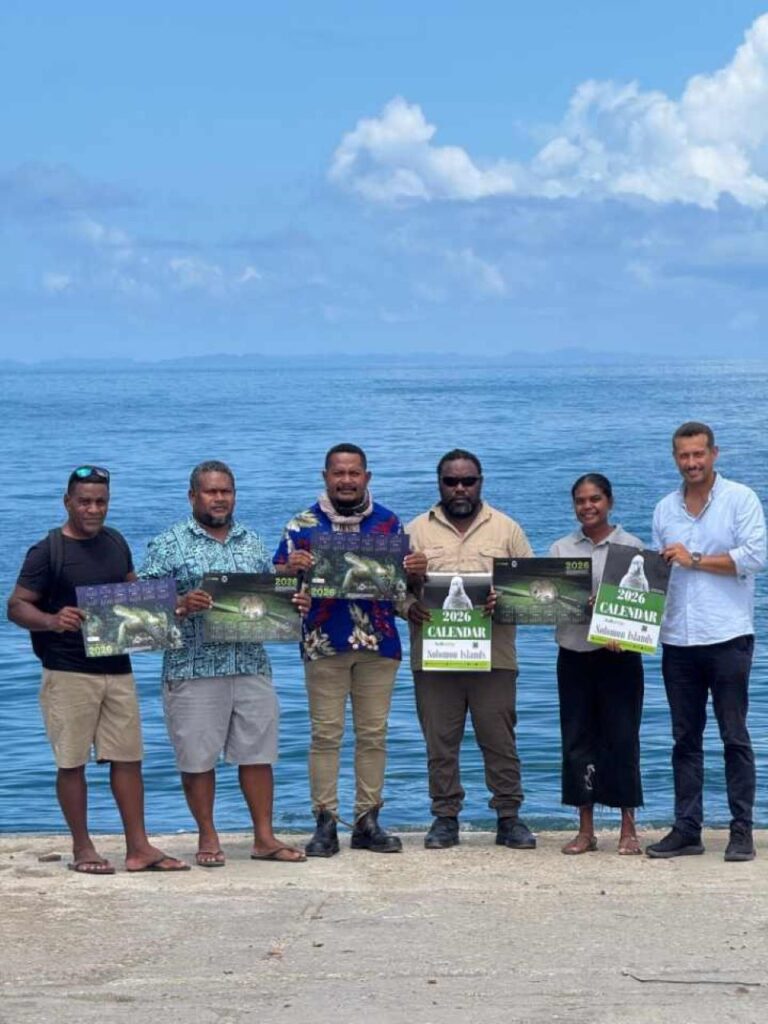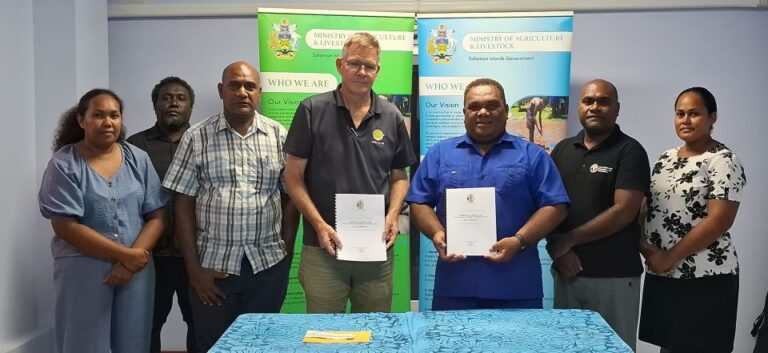BY JOHN HOUANIHAU
An open day program to showcase the premium artisanal tuna bottled products made by the students from the Solomon Islands National University’s department of fisheries studies is scheduled to take place at the FOPA grounds of Panatina Campus, East of Honiara, tomorrow – November 11.
The one-day event will attract the participation of students from the department of fisheries studies to introduce and sell their first processed premium artisanal tuna bottled products.
Solomon Islands National University (SINU), Head of Department, Fisheries Studies, Dr. Kofi Otumawu Apreku described they have been producing artisanal tuna bottled products since a couple of months ago through a ‘Tuna Bottling Project’ that is supported by Ambleve Bedrock foundation, an American organization that is assisting fisheries institutions and fisheries communities to equip and train people in the process of Tuna bottling.
“The organization got in touch with us and then we gave them our proposal and they gave us some small funds to start up the project and also to be able to train the local communities in the country,’’ Dr. Kofi said.
He said that they have only produced a limited number of artisanal tuna bottled products, and it is yet to be made available in the local market.
“At the moment, the quantities are limited, we have only produced 19 tuna bottled products for this open-day program tomorrow (Friday).

“However, we have recently distributed a few samples of tuna bottled products to the senior management officers of the Solomon Islands National University (SINU), just to enlighten them, and their feedback was very positive,” Dr. Kofi told ENVIRONMENT MEDIA.
Dr. Kofi said that the ‘Tuna Bottling Project’ also received technical support from Dr. Taro Kawamoto, a Japanese specialist, and advisor to the Forum Fisheries Agency (FFA) office in Honiara.
“Dr. Taro invited us to undergo a training workshop at the FFA,” he said.
He also highlighted that the project is expected to roll out to five rural communities in West Guadalcanal.
“We have identified five communities in West Guadalcanal that we are going to train their individuals to have this knowledge,’’ he said.
Dr. Kofi also noted that to go into a large quantity of production, they have to initially test the potential of the tuna bottled products in the market.
“Although we have a modern sophisticated science laboratory with highly hygienic conditions, we still have a lot of challenges of going into large-scale production due to logistics issues,” he added.
Meanwhile, SINU’s department of fisheries studies, safe food processing lab expert, and lecturer, Luke Jino told ENVIRONMENT MEDIA that they have reused jam bottles to produce the tuna bottled products.
“In other words, it’s easy for us to transfer this knowledge to local communities, as Dr. Kofi had mentioned, we will be engaging five communities in Western Guadalcanal, therefore, the used jam bottles from the shops can be reused after finishing the jam and this might serve as food security,’’ Jino said.
He said that to make it safer, they have used the sterilized cooker to kill any types of microorganisms and bacteria that are inside the bottles.
He said that they are using different types of bottle lids.
“We are not using the lids from the jam bottles, we used golden lids. The golden lids were donated to us by Dr. Taro Kawamoto. He imported the lid from Japan. You cannot get this lid from the local market.

“The tuna and other ingredients inside the bottle are bought from the local market,’’ said Jino added.
On a similar note, SINU’s department of fisheries studies, safe food processing expert, and lecturer, Collin Gereniu said that they have followed all the safety protocols that are required to produce safe food products.
“We have tested the process of manufacturing the product and we are very confident that this product is very safe for local consumers.
“The f-value (food test value) of the bottled tuna product is more than 4 which means it is very safe for consumers to consume and enjoy,’’ Collin said.
He said that at the moment they are still working on the self-life of the product.
“We have stored and tested the tuna bottled products from 3 to 6 months and later a year to make sure the lifespan is okay for consumers,” Collin said.




